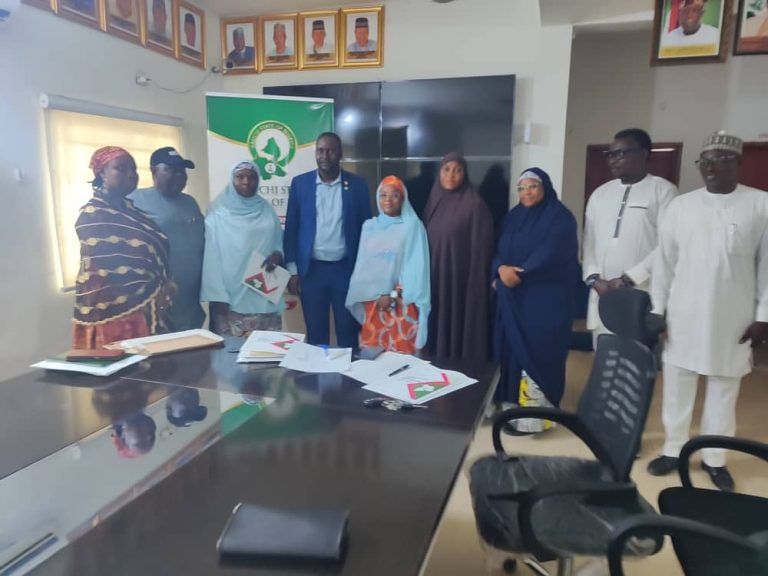The Gender Desk Officer at the Bauchi State Ministry of Health and Social Welfare, Zuwaira Baba, has emphasized that gender mainstreaming, community dialogue, and stakeholder engagement are critical components of the ministry’s response to issues affecting women and children—particularly in relation to immunization.
She made this known during an engagement meeting with members of the Zero Dose Learning Hub (ZDLH) Community of Practice held at the ministry’s premises.
Describing women as key stakeholders in immunization campaigns, Baba stressed that engaging both women and men would significantly boost immunization coverage, especially in zero-dose local government areas.
“I want to assure you of the Gender Unit’s commitment to the cause of addressing zero-dose challenges. We will work closely with the Zero Dose Learning Hub Community of Practice,” she said.
Also speaking at the meeting, the Gender Officer at the Bauchi State Primary Health Care Development Board, Amina Balali, highlighted the importance of male involvement in health interventions and the need to integrate other health-related activities into community dialogue platforms.
She reaffirmed the Board’s commitment to supporting effective immunization coordination and delivery across the state.
Balali further assured the team of her unit’s readiness to share findings from the Decentralized Immunisation Monitoring (DIM) and the Immunization Financing Scorecard with relevant stakeholders, with a view to collaboratively addressing identified gaps.
In his remarks, the State Focal Person of the Africa Health Budget Network (AHBN), Dr. Hassan Musa, said the advocacy visit aimed to strengthen collaboration and promote inclusive strategies to bridge immunization gaps, particularly among underserved and zero-dose populations in Bauchi.
Dr. Musa presented key findings from the recent DIM conducted by AFENET, as well as the 2024 Immunization Financing Scorecard developed by AHBN.
He noted that Gender Units in both institutions have a cross-cutting responsibility to ensure equitable access to lifesaving vaccines for all.
By Lizzy Carr


